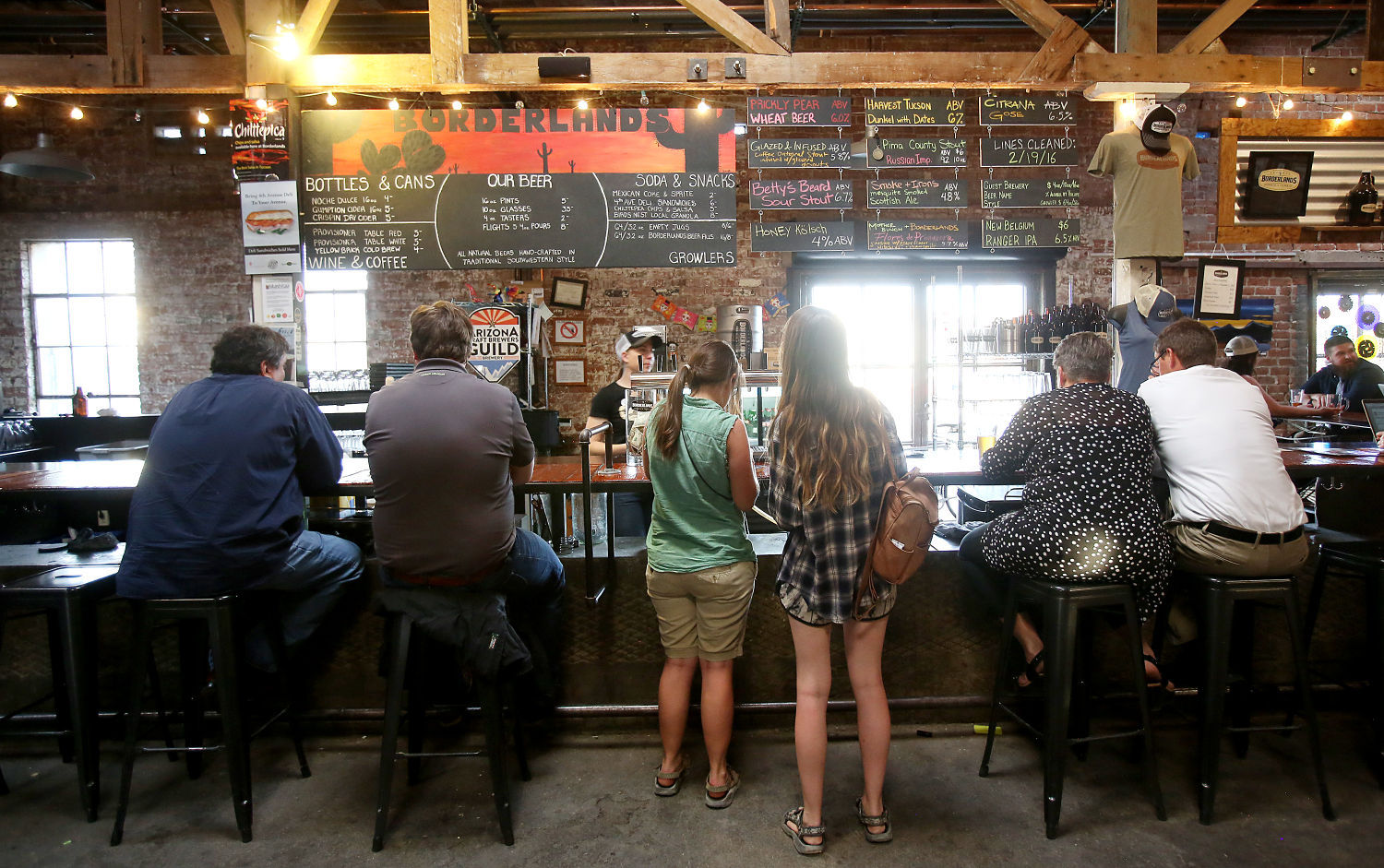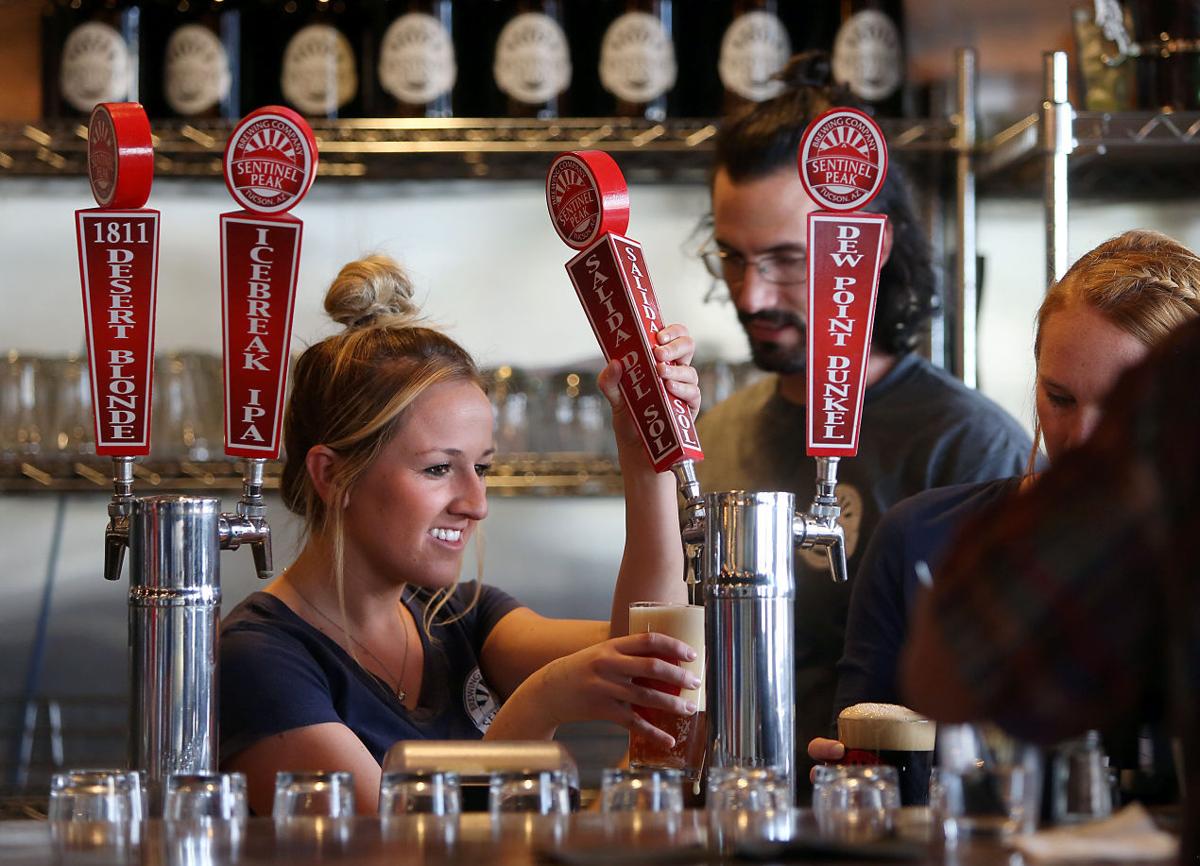Community support
Community is key in craft brewing. Many of the local brewers began as homebrewers, and even the relatively major players keep their eyes on home as the prize.
“I would never consider sending my beer out of state.” Arnold says. Barrio was the first brewery in southern Arizona to package in cans, now cranking out 6,000-7,000 barrels a year which are distributed statewide. But Arnold says quality suffers when the product strays too far from its source, and it’s the home-base brewpubs that keep local breweries alive.
“Breweries do well in their own hometown, and we’re really grateful for the business Tucson gives us.”
Local brews going big-time has been a hot topic lately, especially in Arizona where Anheuser-Busch InBev announced its acquisition of Tempe-based Four Peaks last year. Arnold sees the move as clear evidence of ABI’s intentions to take over the craft beer market, and the revision of SB 1030 last year, also known as the Arizona Beer Bill, meant Four Peaks could remain a craft brewery while producing around 70,000 barrels a year, making it a tempting prize for ABI.
But, Fullmer says, the bill also allowed smaller breweries to plan bigger, and for really micro establishments to collaborate on brews that could be sold on others’ taps. Fullmer also says the national exposure only helps highlight the growing Arizona market.

“I think because of our legislative efforts, people are starting to see that Arizona does have something to contribute to craft beer culture,” He says. “Our peers are looking at who’s getting legislation accomplished and we were on top of the list last year.”
White says that “big beer is a big threat,” but understands Four Peaks’ decision to sell as a smart business move on their part.
“But that’s always been at the core of craft beers, it’s David vs. Goliath. I think that’s always something that will be at the core of the craft beer scene,” White says.
For Dragoon’s part, he says they’re not going anywhere anytime soon. He estimates that 80 percent of Dragoon’s statewide distribution remains in Tucson, where he and many others, including Fullmer, call the market “underserved.”
“That’s why we don’t really care to look outside the state,” White says. “There’s still a ton of growth we can do.
“I think it’s something exciting as people are continuing to eat closer to their home, it makes sense to drink beer that was made down the street.”





